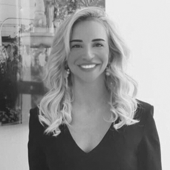

Head of legal - MEA and EUMEA and regional legal lead JV integration (consumer healthcare) | GSK




Yelda Dogan Yasarturk
Head of legal - MEA and EUMEA and regional legal lead JV integration (consumer healthcare) | GSK
Cluster legal director for Turkey, Near East and direct distribution markets | GlaxoSmithKline (GSK)
Following a two-and-a-half year period as a competition and M&A lawyer at ELIG law firm, Yelda Dogan Yasarturk moved in-house to join GSK as a legal manger in Turkey. ‘I...
I cover the MEA region consisting of more than 35 countries including Turkey, Egypt, Pakistan, Gulf countries, Lebanon, Jordan, Iran, Saudi Arabia and African countries, all very diversified, complex, and high-risk markets. The MEA region has very complicated legal systems with laws and regulations varying from country to country. It is also high-risk in terms of anti-counterfeiting law, competition law, anti-bribery and corruption law and sanctions and export control regimes along with its diversified cultures and different socioeconomic environments. These require high level of accountability with deep legal knowledge and leadership. Multiple jurisdictions including different local legal legislations require high levels of involvement, technical knowledge and strategic points of view concerning litigations, competition law, contract law, company law, FCPA, anti-bribery acts and sanctions. Export control regimes and other international and local laws with significant impact to the business are used on a daily basis to exercise judgement based on legal risk to the company, and other factors.
I provide regional legal support to the global integration team on the new joint venture transaction with Pfizer for the Europe and MEA regions, currently one of the top priorities of [GSK’s] consumer healthcare business. The joint venture brings together two highly complementary portfolios of trusted consumer health brands. The transaction was closed in August 2019 and now Pfizer owns a 32% equity stake in the joint venture and GSK owns 68%. The combined brand portfolio forms the world’s largest over-the-counter business with leadership positions in pain relief, respiratory and vitamins, minerals and supplements, and therapeutic oral health. The Joint Venture currently focuses on completing the integration of the two businesses, and I support to the global integration team for the Europe and MEA regions.
MEA is a very complex and diverse region in terms of political, economic and regulatory developments which have direct impact not only on GSK but also on in-house lawyers. Thus, it is important to stay on top of these changes which would eliminate penalties and potential legal issues. In other words, if in-house lawyers do not refresh their knowledge on these changes, lack of knowledge can make their life challenging and may create ambiguity in management of commercial negotiations with third parties, litigations, disputes, and legal processes before governmental authorities. For example, political factors can easily affect business operations and economic growth of companies which may bring key legal issues related to tax law, labour law, commercial law, trade restrictions, rights of consumers/patients and more.
Business partnering is one of the key assets for in-house lawyers. To feed this concept, I believe high level of mobility to make visits across the region helps in-house lawyers better understand the business along with country dynamics. It also helps boosting the synergy and collaboration between regional, global and local teams. It is also very important to demonstrate key business partner guardian characteristics – technical proficiency, effective communication, clarity and possession of good business knowledge. Improving the level of problem solving and being very solutions-oriented with a high level of execution skills would make in-house lawyers be seen as an integral part of their business. I also believe that exercising quick judgement with appropriate balancing and management of risks and opportunities would create opportunity and value for in-house lawyers. For example, knowing the business that in-house lawyers are advising, studying company products and services along with market and customer dynamics, understanding budget, business planning and sectoral challenges, discussing real life examples with the business, and building strong partnerships and trust would certainly help in-house lawyers to maximise their added value to the business which would bring real competitive advantages.
I believe that the company’s approach for woman leaders in terms of diversity, inclusion, working conditions, and discrimination are very important. In other words, it really starts with the culture of the organisation. Another key factor is how companies successfully integrate gender equality culture across the organisation. The more companies put their commitment on diversity into practice (such as setting diversity targets and metrics) and treat gender diversity like a business priority, the more women will get into in-house legal leadership positions. I think women diversity in leadership can result in greater innovation. Within this context, fostering accountability and sustainability to enable more inclusive environment at the workplace is one of the key elements for getting more women into in-house legal leadership positions.
I believe technological advancements impact every profession including in-house legal teams. Although we work in a legal industry built on people, it is inevitable that technological advancements change the way in-house lawyers work, how they provide legal support, and enhance access to law and justice. In other words, artificial intelligence becomes one of the key instruments for in-house legal teams as well. In-house lawyers should be able to understand technological developments otherwise they may be found remote to the business. Businesses have a high expectation of what technology can bring and in-house lawyers should need to engage with the issues related to technology. For instance, technologies that generate contract management processes not only can help legal teams create contracts more efficiently but also help them to manage obligations and renewal timings under contracts. Such technology would also help in-house legal teams to reduce manual processes and paper documentation. I’m a big fan of technology and innovation in the legal profession and I believe it is very fundamental that we should continue to be close to the development and adoption of technology.